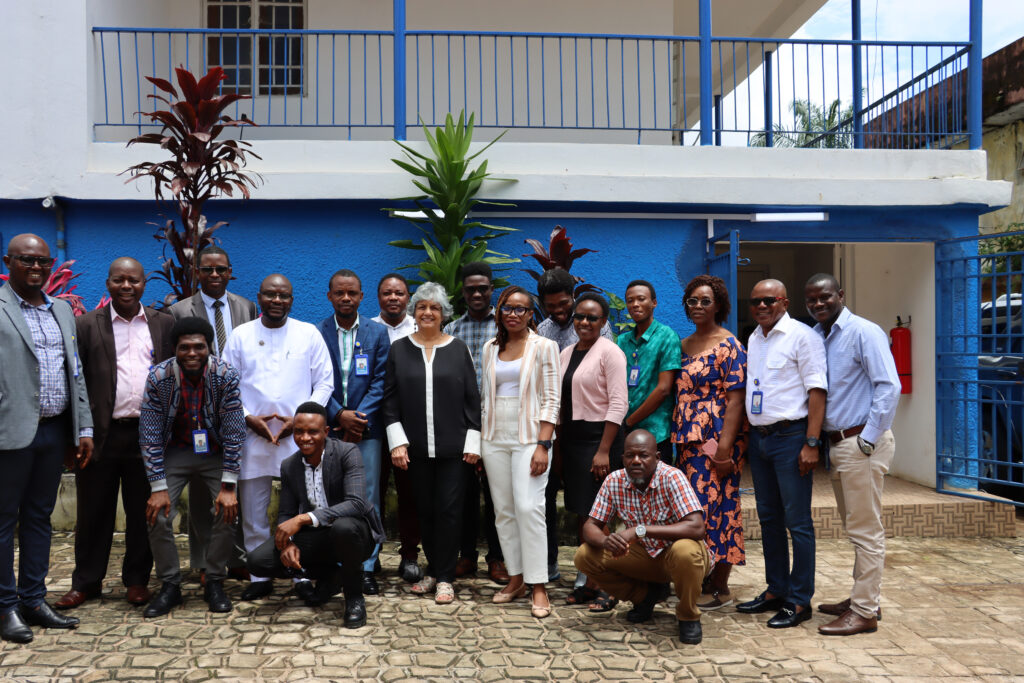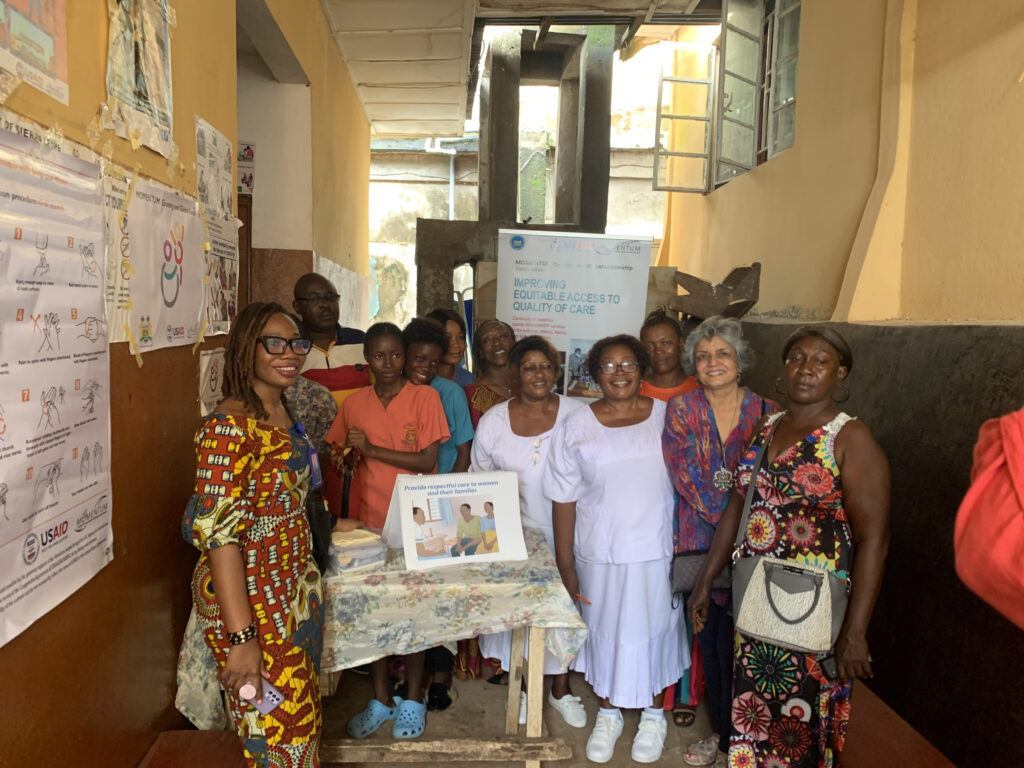I want to take you on a journey. It begins in the busiest maternity hospital in Delhi more than 30 years ago, when as a young doctor, I was horrified at what I saw. It ends in the present day, in a small health center in Sierra Leone, where I watched midwives deliver respectful, quality care to women before, during and after labor.

What I witnessed in my six-month rotation at that Delhi hospital decades ago angered me and has fueled my work ever since. The births happened in a crowded, chaotic room. There was no heat—and Delhi winters can be harsh. I saw women doubled over in pain. Scared. Alone. With no privacy and no one explaining what was happening. Many experienced unnecessary—and by today’s standards harmful—practices like having an enema or their pubic hair shaved. If they were given an episiotomy, it was likely without anesthesia. If a woman squirmed or screamed, she might be scolded or slapped.
Through Jhpiego, I joined a movement of likeminded global partners who know that a woman’s dignity, privacy and confidentiality during labor and childbirth—and her ability to make informed choices about her care—comprise more than a feel-good approach. Respectful maternity care (RMC) saves lives by creating a welcoming environment during one of the most vulnerable times in the life of a woman or newborn.
The safest place for a woman to deliver and a newborn to be born is at a “functional” health facility, one with adequate staff, essential supplies and high-quality services delivered by a skilled birth attendant. Women are less likely to seek services when they hear about mistreatment at a facility. In settings that offer quality services, health workers provide dignified, respectful care as an essential component of care. They identify, manage and treat health conditions that complicate pregnancy, reduce the risk of poor health outcomes for women and newborns, and reduce rates of maternal and newborn deaths and illness.

Early Champions
Jhpiego has championed this movement from its inception—from bringing global recognition to the problem, to galvanizing funding to address it, to helping countries translate RMC to their specific needs. Today, we carry the RMC banner forward through the Jhpiego-led and U.S. Agency for International Development (USAID)-funded MOMENTUM Country and Global Leadership project as well as other maternal health initiatives.
Countries are leading the way on RMC and increasingly adapting and using the global guidance, tools and resources developed by the World Health Organization, USAID, MOMENTUM Country and Global Leadership, and others to make RMC a reality. MOMENTUM Country and Global Leadership is helping countries translate global respectful care policies and evidence-based practices into action by creating awareness about the “must haves” for RMC, and supporting country efforts to incorporate them into their daily practice.
These include engaging the community, providers and local health leaders in a collaborative process to prioritize RMC, and recognizing that strained and under-resourced health systems lead to overworked, underpaid providers who suffer disrespect themselves and experience burnout. Therefore, the lack of RMC is not a provider issue; it is a health system issue.
Countries Driving Their Own Success
In every country where MOMENTUM Country and Global Leadership works, national and local leaders and health workers are moving RMC forward. Decades after the need for RMC was made real to me in India, I saw the power of local leadership on a visit to Murray Town Health Center in Sierra Leone. This small clinic on the outskirts of Freetown is supported by the project and provides basic health and emergency services to mothers, pregnant women and children from surrounding communities.

The nurses and midwives I met were eager to tell me about themselves, their work and their clinic. And there was one thing in particular that they could not stop talking about: respectful maternity care.
We allow (birth) companions, speak gently and offer services with a smile.”
Murray Town midwife, Zainab Mansaray
In addition to providing RMC training, MOMENTUM Country and Global Leadership supported the team to identify their own priorities for improving quality of care. The staff set their sights on reducing waiting times for women in labor. They proposed having a lab technician dedicated to the delivery ward available for every shift. Now, a lab technician collects samples and brings them to the lab for screening while nurses admit patients and carry out routine assessments, shortening wait times. Since the RMC training and reduced waiting times, more women in the community are choosing to deliver in the facility rather than at home.
That is what true locally driven change looks like. These nurses and midwives are setting the priorities today and charting their own paths to improve care. It’s about countries, health facilities and health workers taking the lead in realizing RMC as it looks like for them.
In Sierra Leone alone, MOMENTUM Country and Global Leadership has provided RMC training to 267 health care providers and supports 53 health facilities on their journey to make tangible, self-determined improvements and provide quality of care.
Jhpiego is carrying out similar work in countries across Asia, Africa, Latin America and the Caribbean, engaging countries to incorporate a stronger focus on RMC to improve and enhance care across maternal and newborn health programs.
It’s a far cry from what I witnessed in that Delhi hospital many years ago. Countries are taking the lead to deliver on the promise of high-quality, compassionate care for all women. The work continues as it always has: partnering with communities, listening first and working together to create the change countries want for themselves.
Koki Agarwal, MD, MPH, DrPH, is the Director, MOMENTUM Country and Global Leadership, and Vice President, DC Operations, Jhpiego. Executive speechwriter Katrin DeCamp and Angela Pereira, Communications Team Lead, MOMENTUM Country and Global Leadership, also contributed to this story.




